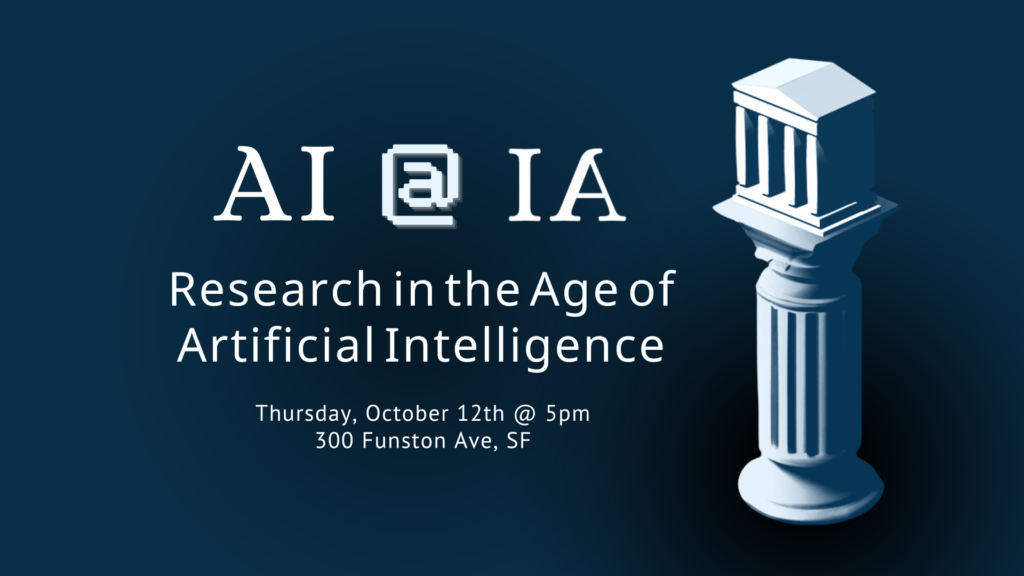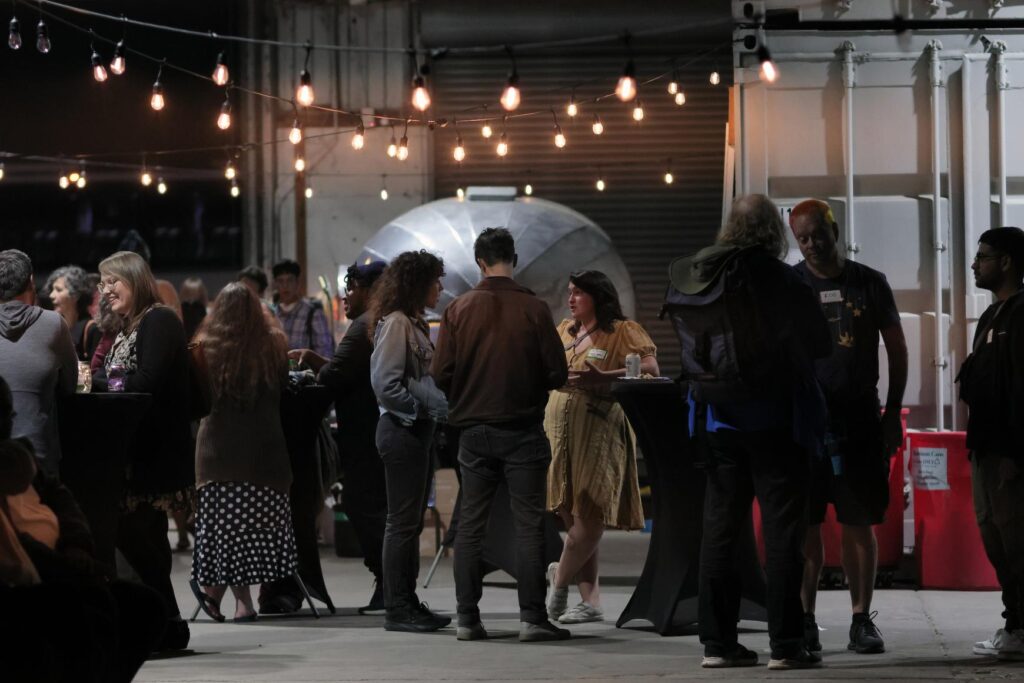
The Physical Archive in Richmond, California, was buzzing with activity the evening of October 11 as people gathered for a peek at how donations of books, film, and media of all kinds are preserved.
Some guests were long-time fans and others had recently donated or were considering giving their treasured items. Many shared a curiosity about how the Internet Archive operates the digital side of the research library.
“I’m a big believer in libraries—and this is one of the weirdest, coolest libraries,” said Jeremy Guillory of Oakland, California, as he toured the buildings and listened to stories behind the many donations on display.

Curated collections from individuals included books from Stevanne “Dr. Toy” Auerbach, a pioneering mass media toy reviewer and early childhood studies author. There was also a set of rare dinosaur books and years of the Laugh Makers, a journal about magic and clowning.
Some large institutions, such as the Claremont School of Theology, donated papyrus fragments from ancient Egypt. Among the eight shipping containers of items from the Graduate Theological Union was a children’s hymnal written in Chinese from 1950.
“We get to explore and make available things that may not be able to be seen otherwise,” said Caslon Kahle, a donation coordinator, speaking to visitors at the event. “It’s important to have this historical record preserved for the public.”
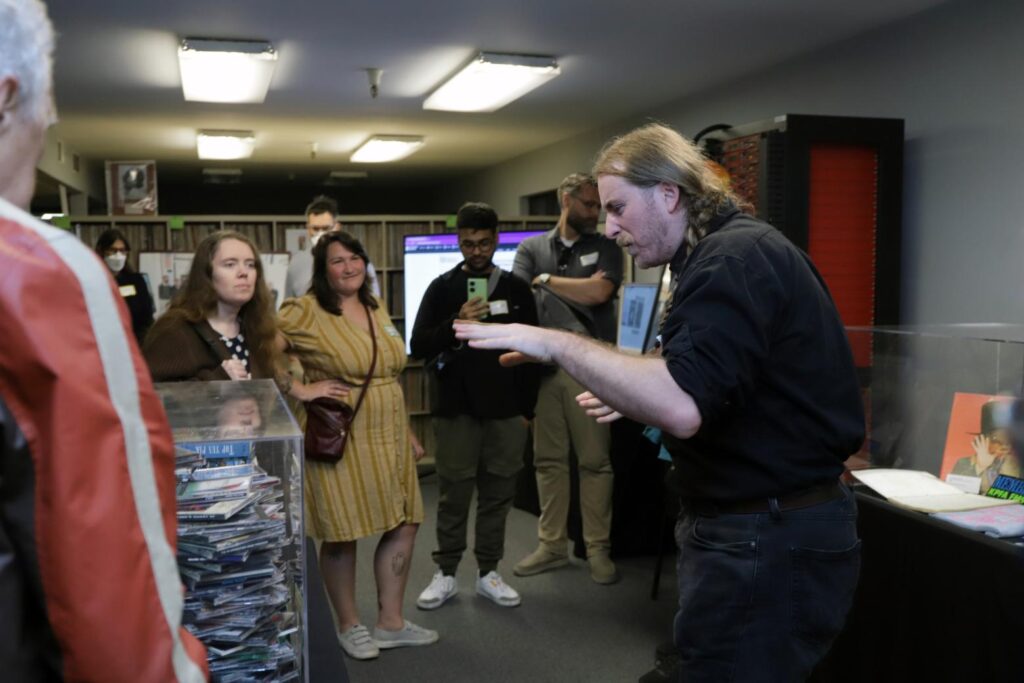
As they toured the facility, guests learned about the meticulous steps taken to sort materials (avoiding duplication), scan books (by people, turning one page at a time) and preserve fragile film (in a high-tech lab). Many expressed an appreciation for the vast and eclectic collections.
“I think it’s super awesome—all the knowledge in one place,” said Rachel Katz of Berkeley, California, who uses the Wayback Machine in their work at a nonprofit organization, researching the historic record of health equity, racial justice and environmental issues. “I don’t think I had thought about the political aspect—that when people want power they destroy knowledge, and library preservation is a hedge against that.”
Daniel Toman came to the event after he’d contributed items when his grandfather, a big amateur radio enthusiast, passed away a few years ago. “He had a bunch of equipment, catalogs and books around the house that nobody knew what to do with,” said Toman, who lives in San Francisco. “I told my family about [the Internet Archive] and they were all interested in donating some of his materials.”
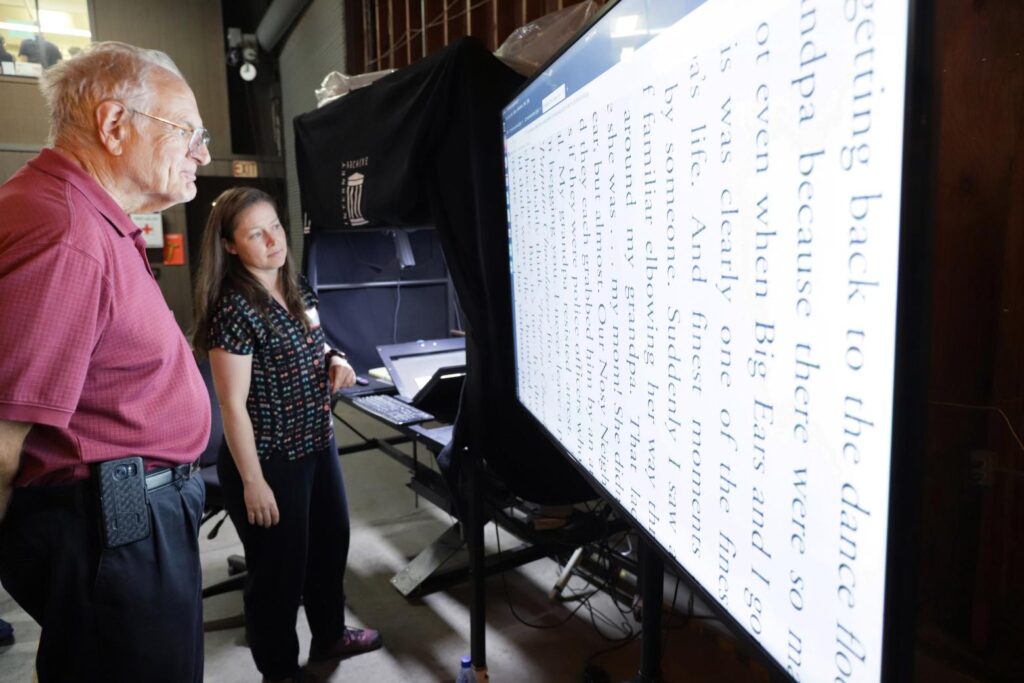
Larry and Ann Byler drove from Sunnyvale, California, to get a first-hand look at the physical archive as they decide what to do with their books, records (78s, LPs, 45s), cassette tapes and home movies that they’ve accumulated over the years.
Ann, 81, said some of their film collection includes black-and-white images of trains that go back to the 1940s. She likes the idea that the Internet Archive could digitize the films at a high resolution.
“I want to get them out of the house—somewhere besides the trash bin,” said Larry, a retired computer programmer, of his wall of media items. “I have this ingrained abhorrence for throwing stuff away.”
At the event, noted film archivist Rick Prelinger provided guests with an inside look at preserving vintage film. “The process is not simple, but it’s achievable when you have resources, and we’re fortunate with the generosity of the Internet Archive that we have resources,” he said.
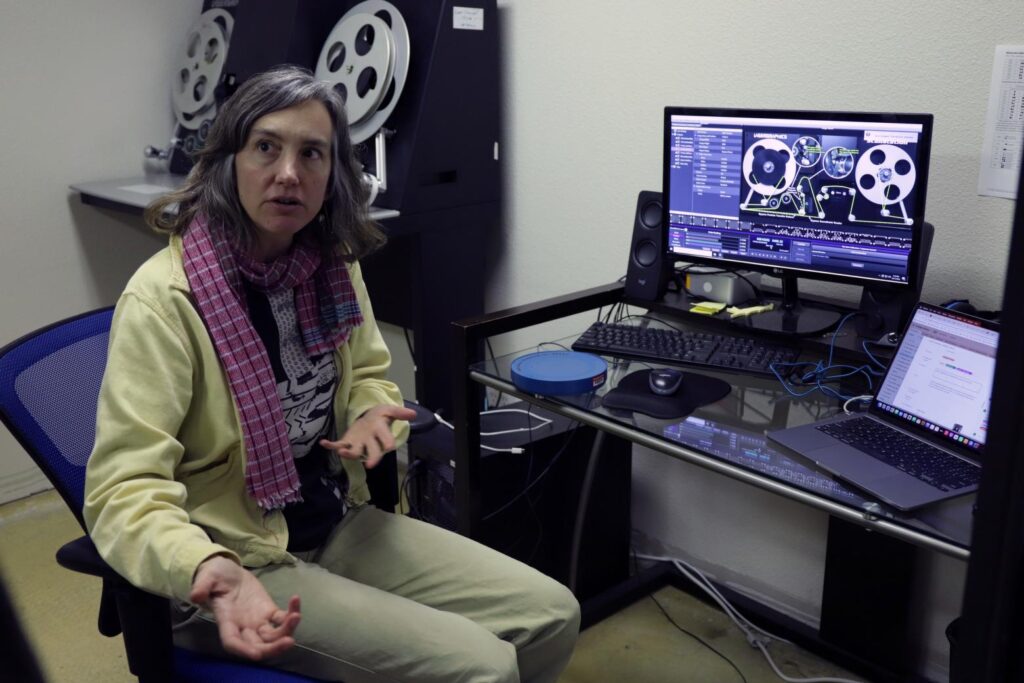
Linda Brettlen, an architect from Los Angeles, said she became familiar with the Archive through her daughter, who uses the collection when looking for primary sources in her documentary filmmaking. Brettlen has become a fan herself, particularly, the collection of old postcards of L.A. buildings that no longer exist.
“I love that it’s the best use of the Internet,” she said of the Internet Archive at the event. “This is a positive beacon.”
